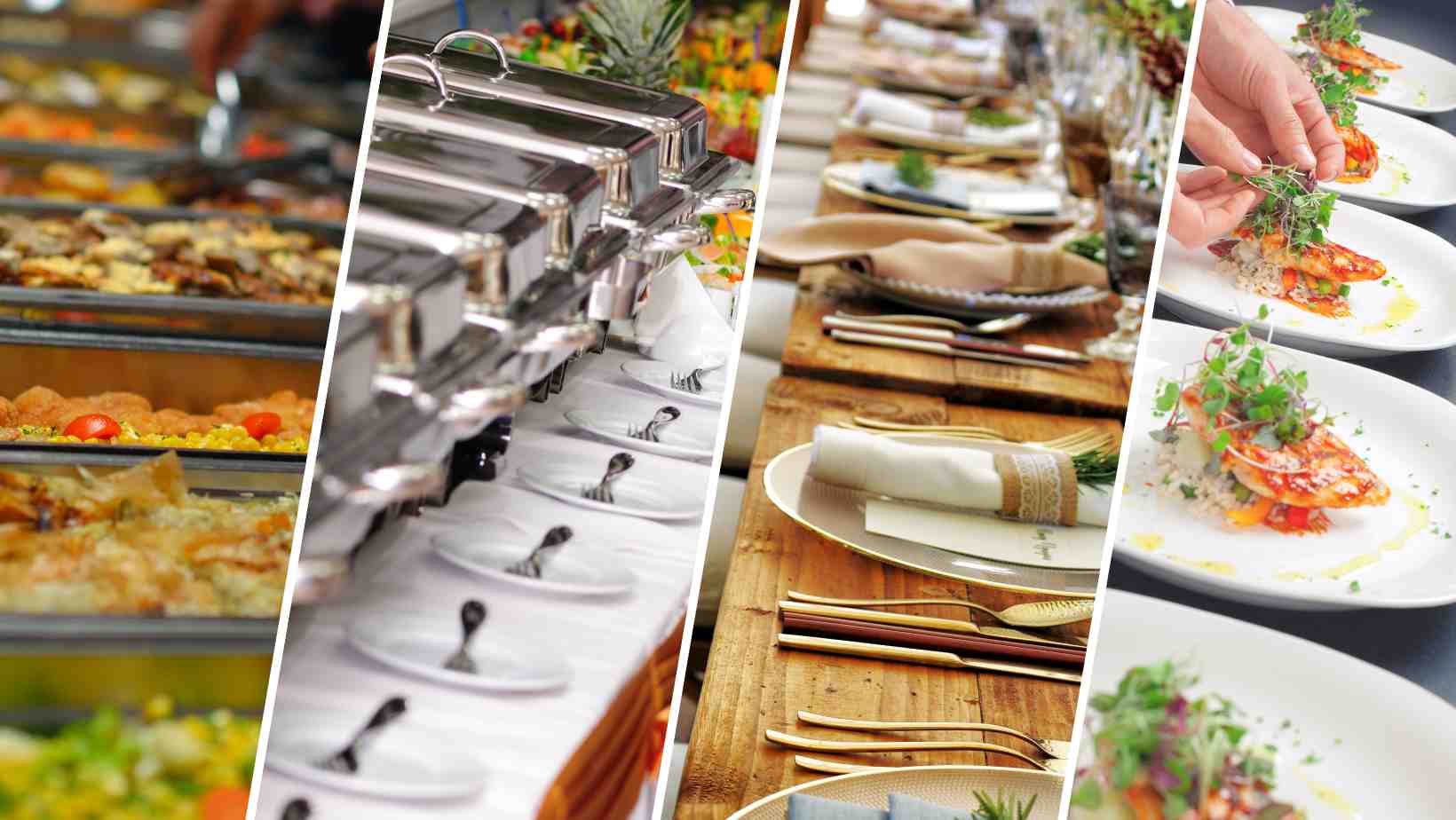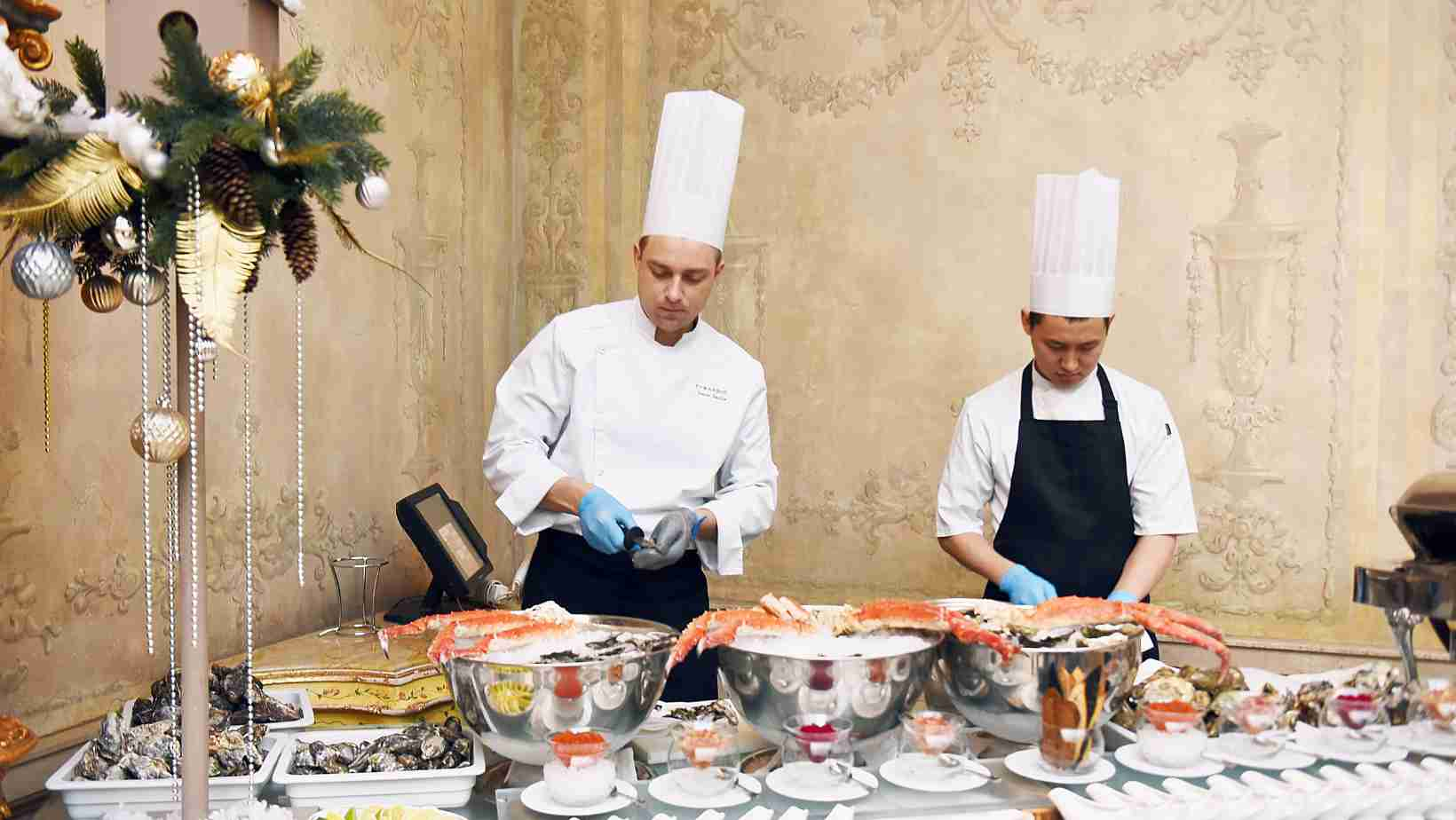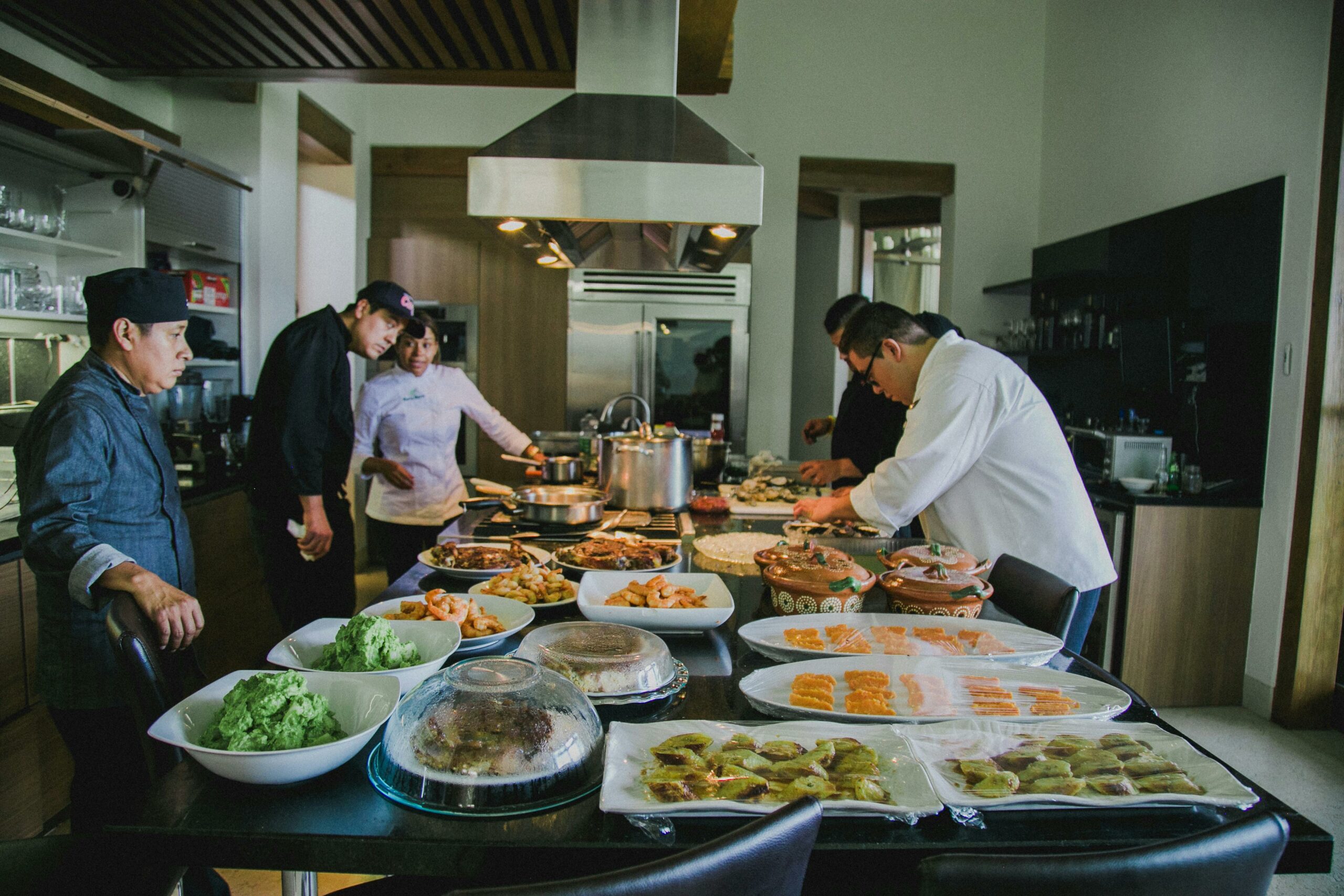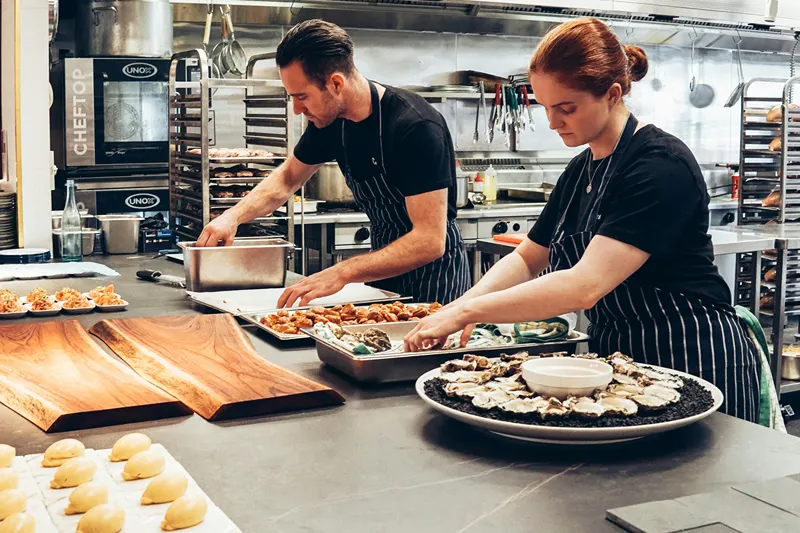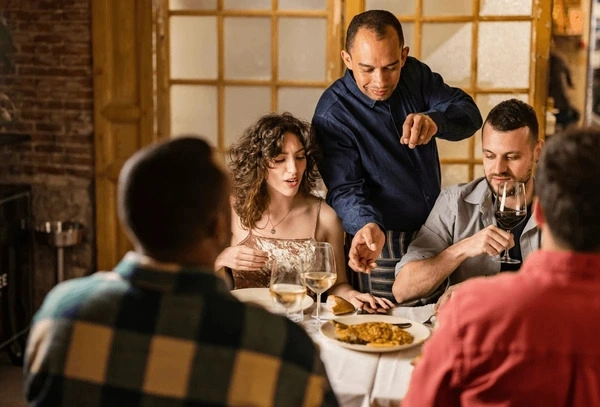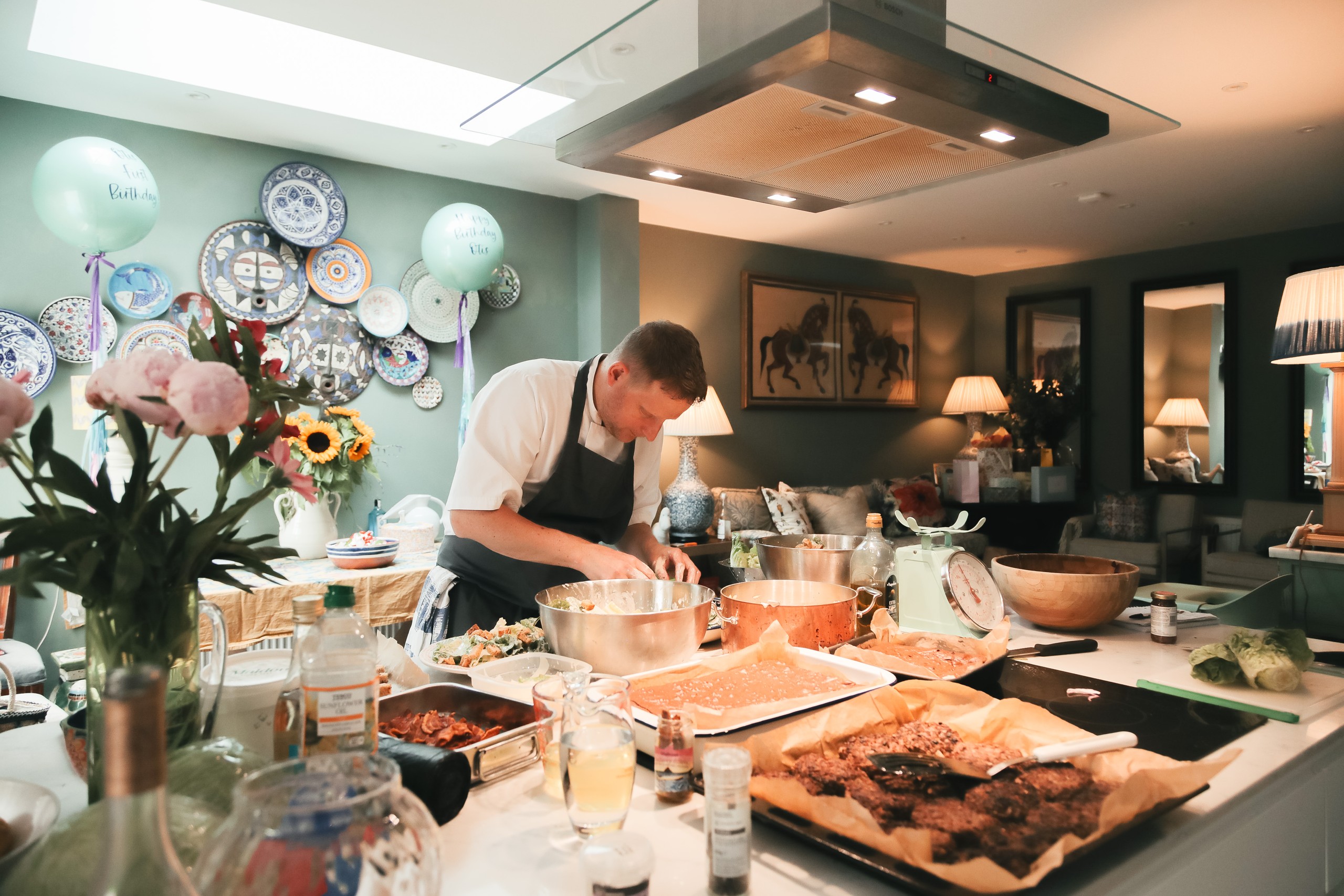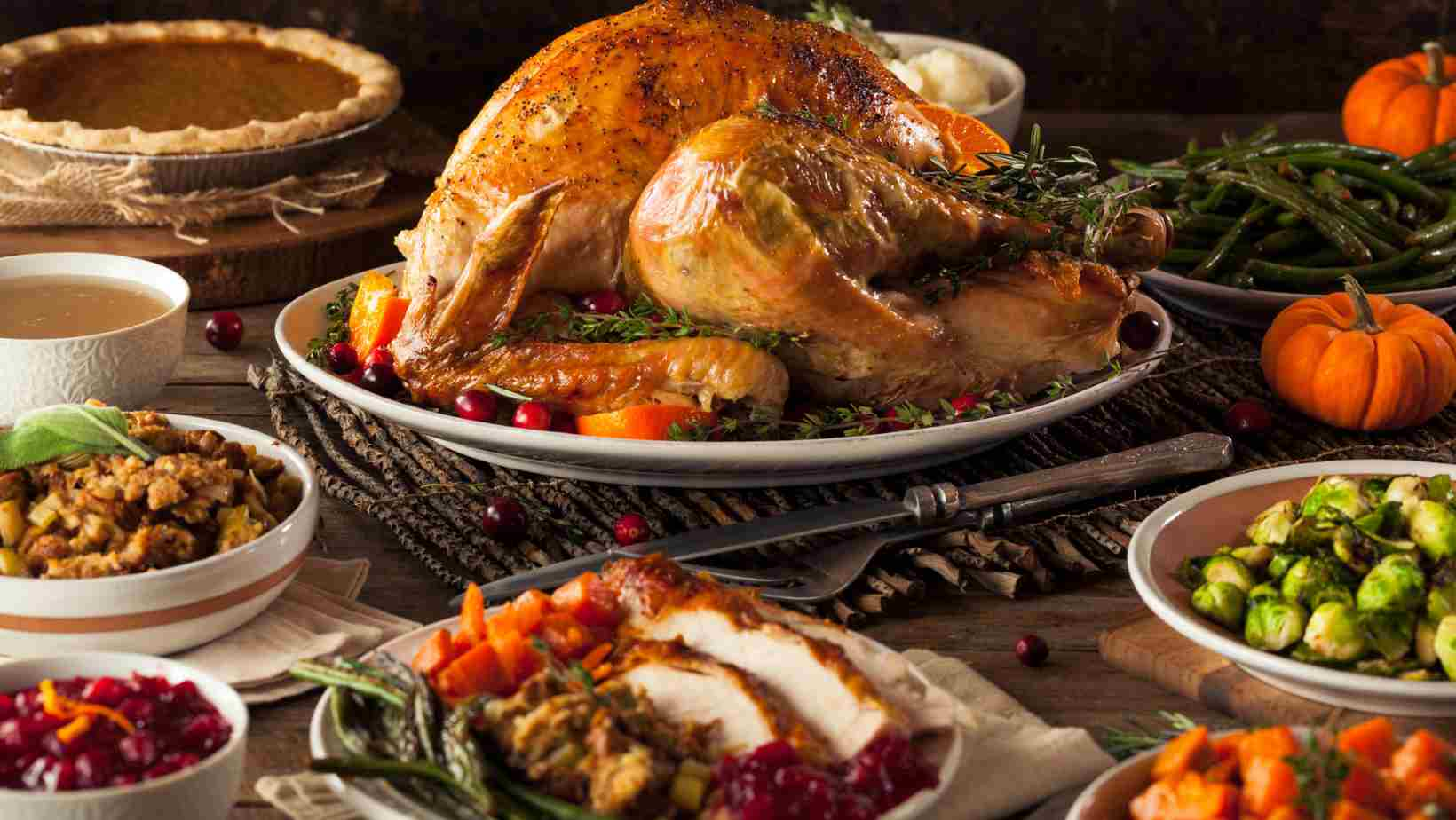Catering vs Private Chef: Key Differences and Insights
Catering vs Private Chef: Understanding the Differences
Both catering services and private/personal chefs solve the problem of providing food for a group of people gathering in someone’s home or rented venue. The market for small events (fewer than 30 people) is underserved by caterers because they care more about bigger events where they earn a lot more.
Big events like weddings are usually booked with a long lead time, leaving people inquiring with individual caterers for small events without many options for dates. As one customer noted, “I found yhangry because the local caterer was busy.”
With that in mind, let’s break down the distinctions between catering and private/personal chefs.
Catering vs Private Chef: A Detailed Overview
When planning your next event, the choice between a caterer and a private chef can make all the difference. Let’s dive into the specifics to help you weigh the pros and cons of each.
Catering
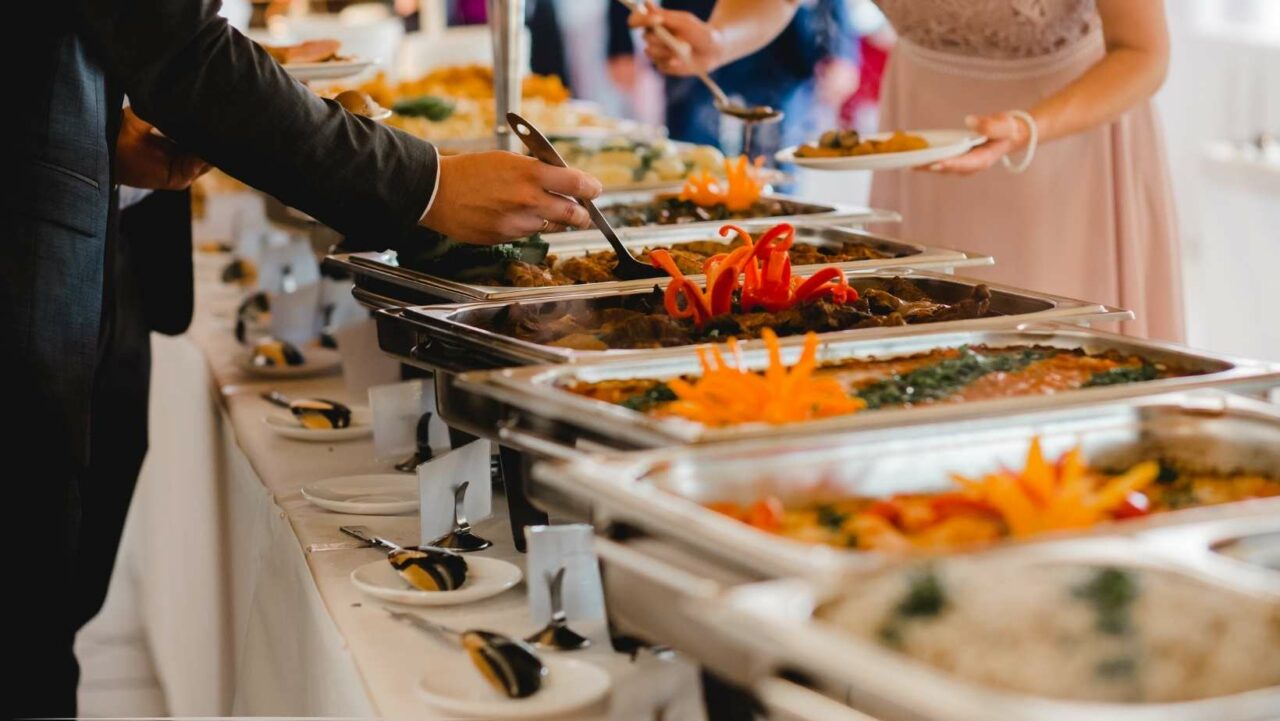
Caterers or catering companies specialise in providing food and services on a large scale, handling events ranging from corporate functions to weddings. With guest capacities ranging from 15 to 500 or more, caterers focus on efficiency with the goal of serving a vast number of people within the required timeframe.
Food is often prepared in a central kitchen, allowing for consistency and standardisation across all dishes before being reheated and arranged at the venue. Their expertise in managing logistical complexities, such as supplying necessary items like glasses, plates, tables, and chairs, makes them ideal for large events.
The term ‘catering’ typically evokes images of buffet tables, uniformed servers, and a structured dining experience for large groups. While catering services excel in scalability and operational efficiency, they often rely on standardised processes, which can limit flexibility and personalisation.
Pros
- Comprehensive Service: Provides not only food but also related services like staffing, tableware, and even decorations in some cases.
- Scalability: Can handle large events with ease, serving hundreds of guests efficiently.
- Consistency and Reliability: Standardisation of processes ensures consistent quality of food, providing a reliable dining experience for every guest, with minimal variation.
Cons
- Limited Customisation: Relies on set processes and menus, which can limit creativity and customisation to meet dietary needs.
- Quality: Food quality can be affected by bulk preparation, transportation and reheating.
- Less Personal Interaction: Minimal direct engagement with guests, focusing more on efficiency than on creating a personalised experience.
Private Chefs
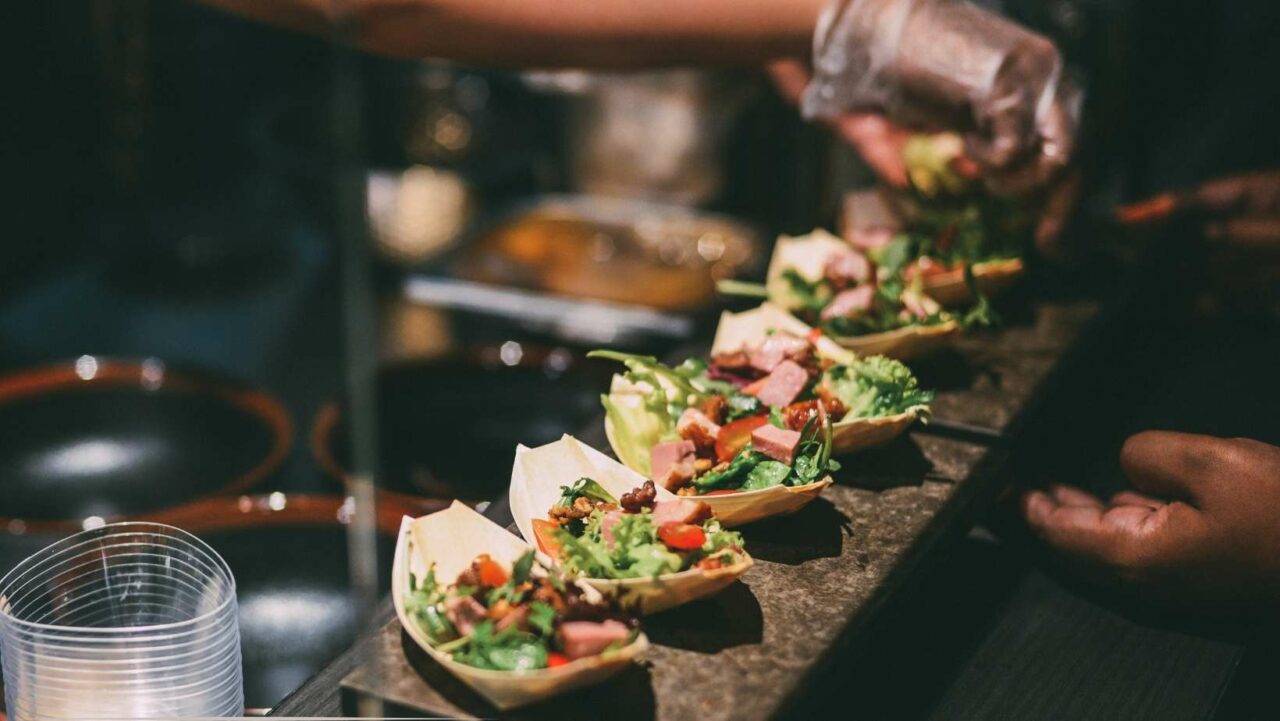
Private chefs offer a more bespoke approach to dining, focusing on creating personalised and high-quality dining experiences. A common misconception is that private chefs are dedicated to working full-time in single households of wealthy families and individuals. However, private chefs can be booked for one-off events, and this kind of service is what they specialise in.
Unlike caterers, private chefs typically handle smaller, more intimate gatherings, ranging from meal prep for one person to a date night for a couple or a sit-down dinner for up to 30 guests in homes or small rented venues. Private chefs design menus tailored to the specific needs of the host, accommodating various dietary requirements. While certain mise en places like chopping vegetables or preparing marinating meat can be done beforehand, the majority of preparation is done right before service.
One of the key advantages of hiring a private chef is the engaging dining experience they provide. From demonstrating cooking techniques to explaining dishes to guests, private chefs offer a level of engagement that traditional catering services rarely match. However, private chefs have limited capacity to provide additional equipment.
Pros
- Creative Freedom: Ability to design bespoke menus and personalised dining experiences that reflect the client’s unique tastes and event theme.
- Fresh, On-Site Cooking: Most of the cooking is done on-site, ensuring that meals are freshly prepared just before serving.
- Engagement and Interaction: The chef often interacts directly with guests, offering explanations and creating a more immersive dining experience.
Cons
- Limited Scalability: Best suited for smaller events, typically up to 30 guests.
- Dependence on Available Facilities: The quality of the dining experience can be influenced by the facilities available at the event location, such as kitchen space and equipment.
- Limited Equipment: While they can supply quality crockery for smaller groups of 10-12, it is uncommon for them to offer table or chair hire without outsourcing to a specialist event hire company.
Key Differences at a Glance
| Aspect | Catering | Private/Personal Chef |
| Event Size and Logistics | Large Events(15+, can go beyond 500) Handles complex logistics Supplies equipment (glasses, plates, tables) | Best for small gatherings (1-30 guests) Limited logistics Cannot provide bulk equipment |
| Cooking and Quality | Food prepared off-site, reheated at the venue Bulk preparation for efficiency Quality may diminish with reheating | Freshly prepared on-site High-end, restaurant-quality experience The majority of the preparation is done before serving |
| Menu Customisation | Pre-set menus for large groups Limited customisation Focus on consistency | Highly customised menus Tailored to preferences and dietary needs Ideal for personalised dining experiences |
| Interaction and Engagement | Minimal chef-guest interaction Focus on seamless service Limited personal connection | High level of interaction with guests The chef engages directly, explaining dishes and techniques Personalised experience |
| Cultural Connotations | Associated with large-scale events Not considered for intimate gatherings | Incorrectly perceived as full-time luxury service for wealthy families Accessible for one-off events, offering personalised service |
Commercial Insights
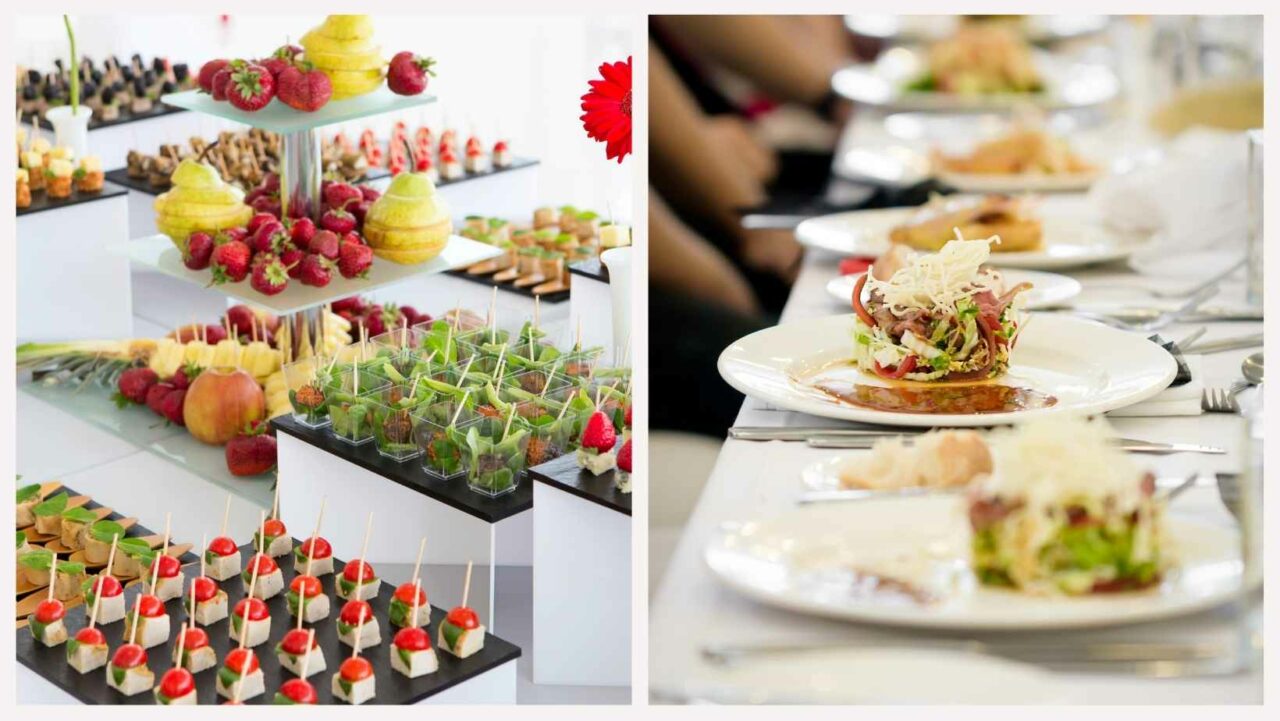
Budgeting for an event involves more than just picking the menu. Whether you’re considering a caterer or a private chef, understanding the full scope of costs is key. From per-person pricing to additional costs, let’s have a look at the financial aspects to give you a clear picture of what to expect.
Whether you're hosting a special celebration dinner, looking for a chef during your holiday or weekly meal prep, we will match you to the perfect chefs.
Start hereCatering
- Per-Person Pricing
- Menu Selection: Costs are based on the selected menu, which can vary depending on the number of courses and the complexity of preparation.
- Included Services: Covers transportation, crockery, cutlery, glassware, and wait staff.
- Economies of Scale: Larger events often benefit from a lower per-person cost compared to hiring a private chef.
- Additional Costs
- Table and Chair Rental: If not provided by the venue, these are billed separately.
- Decorations: Custom decor and themed setups may incur extra charges if the caterer provides them.
- Special Additions: Extra fees for live cooking stations, speciality food counters, wedding cakes or other bespoke services.
Private Chef
- Per-Person Pricing
- Menu Expenditure: Costs include menu planning, ingredient shopping, cooking, type of service expected(fine-dining or casual) and cleanup.
- Travel Expenses: Covers the chef’s travel to the event location, which can vary based on distance.
- Experience-Based Pricing: Rates may vary depending on the chef’s reputation and experience, and personalisation can come with a higher price tag than catering services.
- Additional Costs
- Wait Staff: If additional wait staff are required, this will incur extra fees(sometimes included in the per person cost)
- Equipment Rental: Costs for renting additional equipment, such as tables, chairs, extra crockery and cutlery if needed.
Putting It All in Perspective to Make the Right Decision
A private chef offers personalised service, flexibility, and a tailored dining experience, making them a better choice for intimate events compared to traditional catering.
For anyone organising an event with 20 to 50 people in a rented home, a private chef is an excellent alternative to a catering company. A private chef offers greater flexibility in terms of menu customisation compared to catering companies, which typically provide set menus. For events with fewer than 20 people, a private chef is often the best option, as catering companies are likely not to be interested in such a small event and usually have a much higher minimum spend.
If you are interested in exploring private chef services, platforms like yhangry connect you with top culinary talent across the UK. They bring this exclusive service right to your door in a convenient and affordable way.
- What’s catering like compared to a normal restaurant?
-
While restaurants prepare and serve food on-site, catering services often cook food off-site in bulk and transport it to the event venue. This allows caterers to serve large groups efficiently. However, the focus in catering is on consistency and speed, which can sometimes affect the freshness compared to a meal served directly from a restaurant kitchen.
- How to find work as a private chef?
-
To find work as a private chef, networking and building a strong portfolio are essential. Many private chefs gain experience by working in high-end restaurants before transitioning to private service. Joining a platform like yhangry can also help connect you with potential clients and streamline your business. Additionally, word of mouth and recommendations are powerful tools in this industry, so maintaining strong relationships with clients is crucial.
- Do private chefs clean up after themselves?
-
Yes, private chefs handle the entire dining experience, which includes cleaning up after the meal. After preparing and serving the meal, they will clean the kitchen and leave it in the same condition as they found it.
- Why are personal chefs so expensive?
-
Personal chefs can be more expensive due to the customised nature of their service. Unlike catering, which serves large groups with pre-set menus, personal chefs design bespoke menus tailored to your specific tastes and dietary needs. Additionally, they often use premium ingredients and provide a high level of service, which justifies the higher cost.
